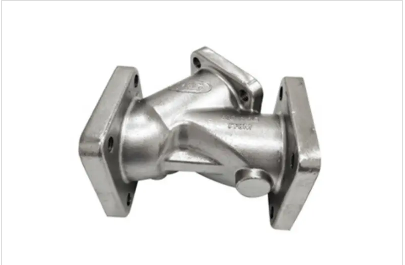Mobile:+86-311-808-126-83
Email:info@ydcastings.com
the two types of centrifugal compressor impellers are
The Two Types of Centrifugal Compressor Impellers
Centrifugal compressors play a pivotal role in various industrial applications, allowing for the efficient compression of gases. These machines utilize the principles of centrifugal force to increase the pressure of a gas as it is drawn into the impeller and expelled at higher energy levels. Central to the function of a centrifugal compressor are its impellers, which are responsible for converting kinetic energy into pressure. There are primarily two types of impellers used in centrifugal compressors the closed impeller and the open impeller. Each type possesses distinct characteristics, advantages, and typical uses, making them suitable for different applications.
Closed Impellers
Closed impellers are characterized by having two shrouds – one on the inlet side and one on the outlet side – that enclose the blades. This design creates a more efficient aerodynamic profile, allowing for greater energy transfer efficiency from the rotating blades to the gas. The blades of closed impellers are usually curved, which helps in maintaining the velocity of the gas as it flows through the impeller.
One of the primary advantages of closed impellers is their higher efficiency compared to open impellers. They tend to produce a more stable flow and can handle a wider range of operating conditions. This makes closed impellers ideal for applications involving clean and dry gases, such as in air conditioning systems, refrigeration plants, and gas compression in the oil and gas industry. Additionally, the enclosed design helps to reduce the risk of mechanical damage and erosion from particulate matter since the gas is less likely to come into direct contact with the impeller blades.
However, closed impellers also have some limitations. Their complex design can make them more challenging and expensive to manufacture and maintain. Furthermore, they can be less effective in handling gases with higher levels of contaminants or particulates, as the enclosed space may lead to clogging or increased wear over time.
the two types of centrifugal compressor impellers are

Open Impellers
In contrast, open impellers lack the shrouds found in closed impellers, exposing the blades to the flow of gas. This design allows for greater flexibility and is better suited for applications where the gas may contain solid particles or liquids. Open impellers can handle a wider variety of gaseous mixes, making them a popular choice in industries such as wastewater treatment, chemical processing, and agricultural applications where moist or contaminated gases are common.
The primary advantage of open impellers lies in their robust nature and the ability to manage gas streams with significant impurities without suffering severe damage. They typically have a simpler construction, which translates into lower manufacturing and operational costs. Maintenance is generally easier, as open impellers can be accessed more readily for cleaning or repair.
However, open impellers come with trade-offs. They are usually less efficient than closed impellers in terms of energy transfer since the absence of shrouds can lead to issues such as turbulence and losses in kinetic energy. As a result, open impellers may not perform as well in high-efficiency applications, particularly where clean gas compression is required. Additionally, the exposed blades can be subjected to more wear and tear due to the abrasive nature of solid particles in the gas stream.
Conclusion
In summary, the choice between closed and open impellers in centrifugal compressors largely depends on the specific application and the nature of the gas being compressed. Closed impellers offer a more efficient and stable performance ideal for clean gases, while open impellers provide flexibility and robustness suited for challenging conditions with particulate-laden or aggressive gases. Understanding these differences is crucial for engineers and industry professionals when selecting the appropriate type of impeller to ensure optimal performance and longevity of their centrifugal compressors. By weighing the characteristics and potential applications of both designs, users can make informed decisions that enhance operational efficiency and reduce maintenance costs in their engineering processes.
-
Why Should You Invest in Superior Pump Castings for Your Equipment?NewsJun.09,2025
-
Unlock Performance Potential with Stainless Impellers and Aluminum End CapsNewsJun.09,2025
-
Revolutionize Your Machinery with Superior Cast Iron and Aluminum ComponentsNewsJun.09,2025
-
Revolutionize Fluid Dynamics with Premium Pump ComponentsNewsJun.09,2025
-
Optimizing Industrial Systems with Essential Valve ComponentsNewsJun.09,2025
-
Elevate Grid Efficiency with High-Precision Power CastingsNewsJun.09,2025











